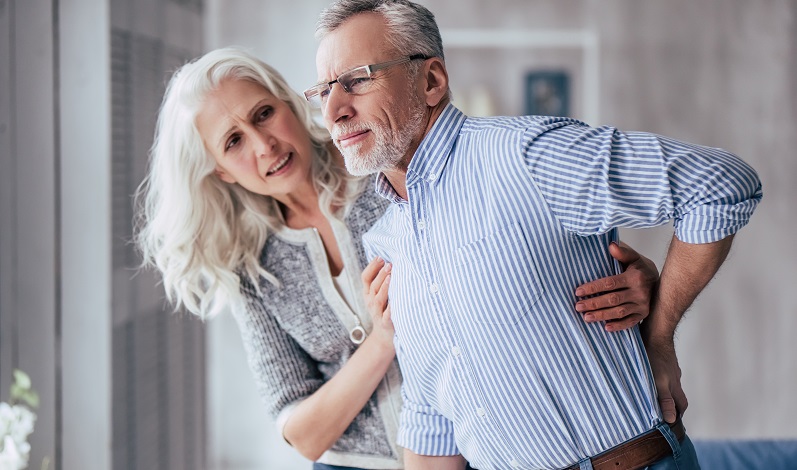How Older Adults Can Prevent Spinal Osteopenia
Category: Spine | Author: Stefano Sinicropi

Osteopenia is a medical condition that takes a closer look at a person’s bone mineral density (BMD). Strong, dense bones are more stable and less likely to fracture when stressed, but we all naturally lose some bone mineral density as we get older. Osteopenia occurs when your bone mineral density is lower than what is expected or normal for your age. When the condition affects your spinal column, it is known as spinal osteopenia.
As we noted above, it is completely normal to see your bone mineral density decrease a bit as you age, but at the same time, you want to take steps to ensure that your bone density doesn’t dissipate too quickly, leaving you susceptible to spinal osteopenia and eventually spinal osteoporosis. In today’s blog, we share some tips for how older adults can work to prevent spinal osteopenia.
Preventing Spinal Osteopenia
Your bone mineral density will naturally decrease a bit over the years as a result of normal wear and tear, and osteopenia becomes more common in adults over the age of 50. It’s also much more common in postmenopausal women due to the drop in estrogen levels in their body. There’s not much you can do to kickstart hormone production once you get older, but there are a number of ways you can work to reduce your risk of losing bone mineral density at too quick of a rate. Here’s what you’ll want to do.
- Nutrient-Rich Diet – One of the best things you can do for your spine and your bone health is to consume a healthy diet full of vitamins and minerals. Vitamin D, Vitamin K, calcium and zinc are important nutrients to regularly consume in your diet. If you are having a tough time getting enough of your daily vitamins and minerals, talk to your doctor about supplements.
- Exercise – Another smart way to slow down BMD loss is to get regular exercise. Exercise helps to improve circulation and push healthy blood to structures that rely on it, but it also helps to ensure muscles and soft tissues that support our bones are strong and stable. If these tissues can better handle stress, it can take some strain off of the bones, which can slow down natural bone degeneration.
- Weight Management – If you are good about managing the first two points, odds are this point will be easier to come by. If you are overweight, your body has to handle more stress with every step you take. Over time, all of this added stress will take its toll on your bones, and if you’re no longer replacing old bone with healthy bone as efficiently, this can lead to bone mineral density decreases in your spinal column.
- Avoid Smoking And Alcohol – Smoking and excessive alcohol consumption have also been linked to lower bone mineral density scores. Work to kick the habit or reduce your consumption, and your bone density will be stronger for it.
- Hormone Therapy – Some women who are suffering from lower bone mineral density scores may benefit from hormone therapy. Certain estrogen only or estrogen-progesterone combination treatments can help slow bone mineral density loss in postmenopausal women. Your doctor will still want you to follow through on the above techniques even if hormone therapy is pursued.
You won’t be able to completely stop bone mineral density loss, but you can slow the process and maintain strong bones by following the above tips and connecting with a spine specialist if you have any questions or concerns. For help preventing spinal osteopenia or another spinal condition, reach out to Dr. Sinicropi and the team at The Midwest Spine & Brain Institute today at (651) 430-3800.